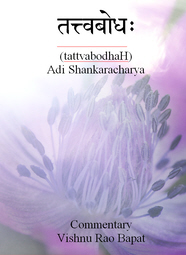Q: What is meant by mokSha as a puruShArtha? (The answer should incorporate a definition of mokSha.)
Responses from Ted, Venkat, Ramesam, Martin, Shuka and Dennis
A (Ted): Moksha literally means, “liberation.” It indicates freedom from dependence on objects (i.e., anything perceivable, conceivable, or in any way experienceable) for happiness, contentment, or a sense of wholeness and completeness. And since it is our vain pursuit of permanent fulfillment through impermanent objects that is the cause of suffering, moksha also implies freedom from all suffering.
Moksha is the essential purushartha (i.e. goal or end) that we are seeking, though in most cases not consciously, through our pursuit of artha (security), kama (pleasure), and dharma (virtue). If we analyze the objects we chase in any of these categories, we invariably find that it is not actually the object itself that we want, but rather the sense of peace and/or happiness that it seemingly provides us. Admittedly, the objects we seek to obtain in these areas are either necessary for our survival or enhance our enjoyment of life, but all are limited. And no limited object can provide limitless fulfillment. Thus, if we depend on these objects for our happiness, we doom ourselves to inevitable disappointment and certain suffering. Continue reading →

